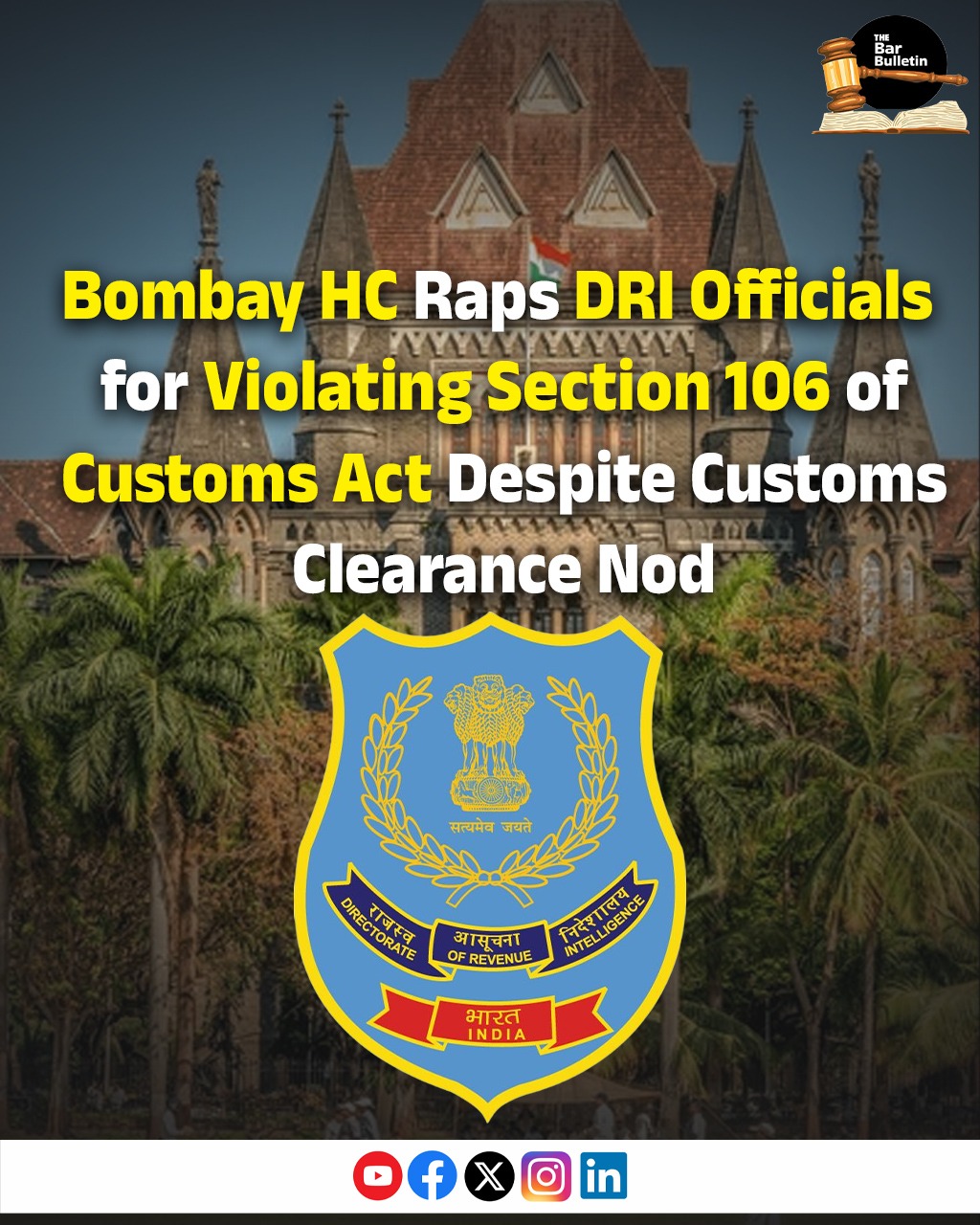Pointing out that the goods in question are ‘dry dates’ and not some prohibited items such as narcotics, the Bombay High Court clarified that the confiscation cannot go on endlessly simply on the premise of some intelligence regarding the nexus of the imported goods with Pakistani origin. The Court ruled that Customs Authorities are entitled to enforce prohibition, but they cannot take the law into their own hands or unreasonably delay proceedings so that the goods spoil.
Therefore, while disapproving of the actions of the DRI Officers, the Court granted an opportunity to the Respondent to issue the Petitioner a show cause notice upon receipt of the response on the issue of the status of the imported goods. The Court also cautioned for granting the hearing opportunity to the Petitioner and the sharing of any adverse material proposed to be relied upon by the Respondent.
Additionally, the Court emphasised that upon failure of disposal of the show cause notice within four weeks, the Respondents shall release the dry dates forming the subject matter of the Bill of Entry and Out of Charge Order. However, the release of the goods, if it occurs, may be conditional upon the payment of a redemption fine or the provision of a bank guarantee to secure the payment of the redemption fine.
The Division Bench comprising Justice M.S. Sonak and Justice Advait M. Sethna observed that once the goods were cleared by the Customs Authority after an examination and after permissible verification, compliance with natural justice is essential before the goods are brought back into the Container Freight Station (CFS), based on the flurry of phone calls to customs brokers and transporters by the DRI allegedly coercing them to bring back such cleared goods.
Reference was made to Section 106 of the Customs Act to state that the proper officer upon reason to believe that any aircraft, vehicle, or animal in India “has been, is being, or is about to be”, used in the smuggling of any goods or in the carriage of any goods which have been smuggled, he may at any time stop any such vehicle, animal or vessel or, in the case of an aircraft, compel it to land, and rummage and search any part of the aircraft, vehicle or vessel, examine and search any goods in or over them, break open the lock of any door.
However, the Bench emphasized that the actions of the DRI do not fall within the scope of Section 106 of the Customs Act, as the goods in the present case had already been cleared by the customs authorities themselves and have not been revoked, thus permitting the Petitioner to transport the cleared goods. Therefore, clearly, the action of the DRI in coercing the customs brokers to return the supplied goods is not the authority granted to him under Section 106 of the Customs Act.
The Bench found it difficult to accept that the goods were returned to the CFS solely based on a “request” of the DRI Officers, and noted that the goods remained with the Customs Authorities for nearly 6 to 7 days and were prima facie cleared after completing all required procedures. Thus, the Bench observed that the DRI has completely ignored the statutory orders of clearance, and ordered the Customs Broker and the transporters to bring back the cleared goods, i.e., dry dates.
The Bench accepted that a clearance order under Section 47 of the Customs Act obtained by fraudulent means cannot debar the issuance of a show-cause notice for confiscation of the goods under Section 124. However, found that in the present case, the DRI, without issuing any SCN and simply based on some intelligence suggesting that the goods had originated in Karachi (Pakistan), had forced the Customs Broker and Transporters to bring back the cleared goods within the CFS.
Briefly, in this case, after the filing of the Bill of Entry, comprising approximately 56 tons of dry dates, the Customs Authorities cleared the goods by issuing an Out of Charge (OOC) order. This OOC was issued after a release order was made by the Ministry of Agriculture and Farmers Welfare, and a No-Objection Certificate (NOC) for clearance of imported food was issued by the Food Safety and Standards Authority of India. Resultantly, the imported goods were physically taken out of the jurisdiction of the Customs Authorities by engaging the transporters and the Customs Handling Agents (CHAs) for delivery to the suppliers.
The Petitioner, however, alleged that the DRI Officers threatened the Customs Broker and Transporter to bring the already cleared goods after payment of Assessed Custom Duty and Examination, back into the CFS, to show that the goods never left the CFS. Thus, both containers were lying in J.M. Baxi CFS despite getting the Out-of-Charge and issuance and a digital signature on the Gate Pass. The Petitioner pleaded that the actions of the DRI Officers resulted in the cancellation of the supply contract entered into by the Petitioner with its suppliers.
The DRI Officer opposed this pleading by contending that they essentially made efforts to trace and intercept the prohibited goods that had been cleared by way of misdeclaration of country of origin, and submitted that the two containers imported by the Petitioner contained goods that had actually originated from Karachi (Pakistan), and were merely routed through Dubai (UAE) for importing into India.
Appearances:
Advocates Dr. Sujay Kantawala, Aishwarya Kantawala, Ayushi Jha, and Jaffry Caleb, for the Petitioner/ Taxpayer
Additional Solicitor General Anil C. Singh, Senior Advocate R. S. Apte, along with Advocates Jitendra Mishra, Satyaprakash Sharma, Sangeeta Yadav, Rajdatt Nagre, Krishnakant Deshmukh, Adarsh Vyas, Rama Gupta, Rupesh Dubey, Abhishek R. Mishra, and Anjali Helekar, for the Respondent/ Revenue

